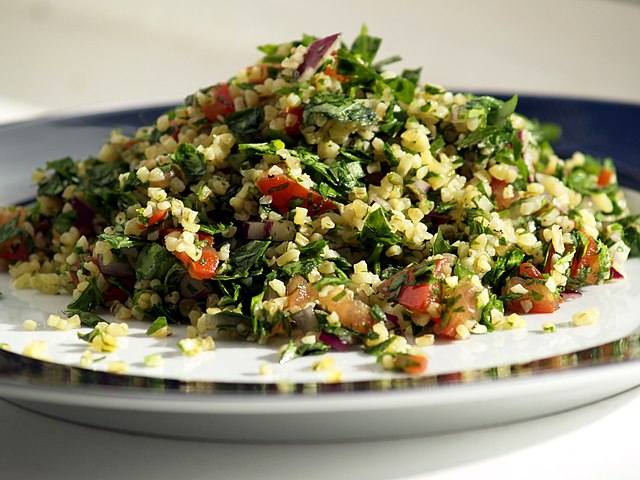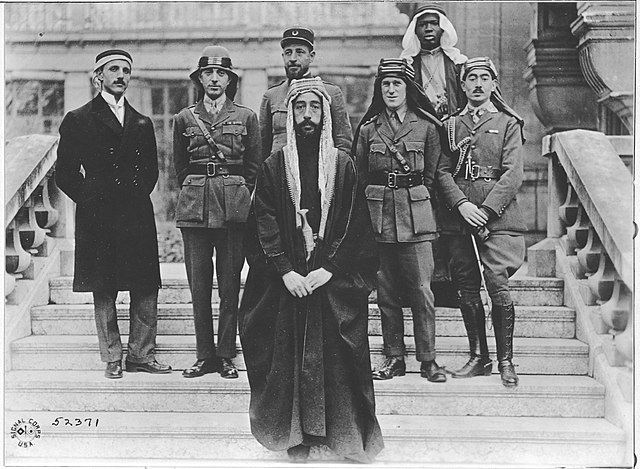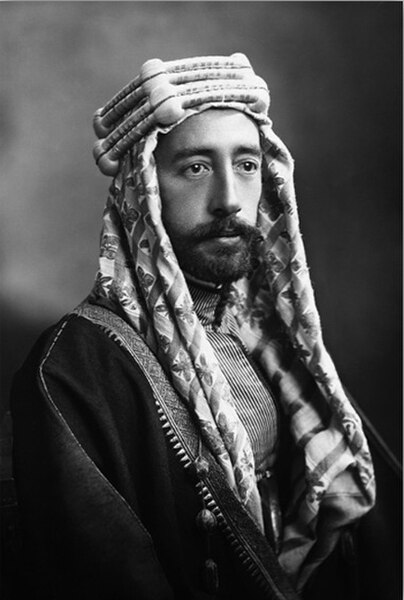Syrians are the majority inhabitants of Syria, indigenous to the Levant, who have Arabic, especially its Levantine dialect, as a mother tongue. The cultural and linguistic heritage of the Syrian people is a blend of both indigenous elements and the foreign cultures that have come to rule the land and its people over the course of thousands of years. By the seventh century, most of the inhabitants of the Levant spoke Aramaic. In the centuries after the Muslim conquest of the Levant in 634, Arabic became the dominant language, but a minority of Syrians retained Aramaic (Syriac), which is still spoken in its Eastern and Western dialects.
Tabbouleh
The Arab Kingdom of Syria was a self-proclaimed, unrecognized constitutional monarchy existing briefly in the territory of historical Syria. It was announced on 5 October 1918 as a fully independent Arab constitutional government with the permission of the British military. It gained de facto independence as an Emirate after the withdrawal of the British forces from OETA East on 26 November 1919, and was proclaimed as a Kingdom on 8 March 1920.
Faisal with T. E. Lawrence and the Hejazi delegation at the 1919 Paris Peace Conference
Proclamation of Faisal I as King of Syria in 1920.
Emir Faisal
25 Syrian piastre banknote issued in Beirut by the Bank of Syria in 1919. The Bank of Syria was later renamed the Bank of Syria and Greater Lebanon and continued issuing currency for both Syria and Lebanon until the 1950s.





